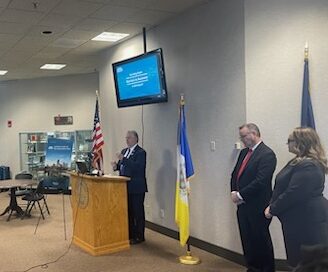A recent report from Shreveport’s Small Business Task Force, working alongside the nonprofit Cities Work, sheds light on the obstacles faced by local entrepreneurs. While startup fees in Shreveport are relatively low, the report highlights an array of regulatory hurdles, outdated processes, and prolonged wait times that make it challenging for small businesses to launch and grow here. The report, based on research and conversations with business owners, suggests ways the city can simplify the process, supporting everyone from new entrepreneurs to seasoned developers in Shreveport’s business community.
Challenges in Starting a Business
The report mentions that Shreveport’s regulatory landscape poses multiple barriers to those launching a business, affecting timelines, budgets, and overall feasibility. Here’s a closer look at the main issues highlighted in the report:
Lengthy Licensing and Permitting Steps
Restrictive Zoning Requirements
Confusing or Conflicting Guidance
Time-Consuming Inspections
Key Recommendations for Change
The report goes beyond highlighting issues by offering solutions that could make business ownership in Shreveport more feasible. Here’s a look at the key recommendations:
- Transform Shreveport’s website into a true one-stop shop
Develop a centralized online portal for all business permits and licenses to simplify and streamline the startup process. Allow home-based businesses to operate by right, without requiring a zoning inspection
Remove unnecessary inspections for most home-based businesses, limiting them only to those that could impact residential areas.Waive the plan approval process if projects utilize pre-approved plans
Provide a library of pre-approved plans for common business types to help entrepreneurs avoid lengthy approval processes.Eliminate landscaping requirements from the UDC
Remove costly landscaping regulations to reduce development expenses and expedite project timelines.Consolidate zoning districts
Simplify Shreveport’s zoning code by merging similar districts, allowing more flexibility for small businesses and developers.Cross-train MPC and Zoning employees on project approval processes
Improve efficiency by training city staff to handle various parts of the project approval process, reducing delays from department backlogs.Streamline the liquor licensing process for restaurants
Simplify and expedite the process for obtaining liquor licenses, especially for locally owned establishments.Require departments to publish inspection checklists and document communications
Standardize inspection processes with clear checklists and document communications to increase transparency and consistency.Implement a “spring cleaning” efficiency ordinance to address outdated or inefficient regulations
Conduct annual reviews of city processes, allowing departments to propose changes that eliminate unnecessary steps.Partner with the business community to establish a Community Navigator
Create a liaison position to help entrepreneurs navigate regulations, providing guidance and resources throughout the startup process.
Taking a hard look at current processes and exploring ways to streamline them is a promising step for Shreveport’s entrepreneurial community. By reducing barriers, the city can help both new and established businesses thrive with fewer obstacles and less stress. These recommendations help support the growth of businesses throughout Shreveport. A clearer, more navigable path forward not only benefits local entrepreneurs but also makes Shreveport more attractive to outside businesses looking to join the community.



